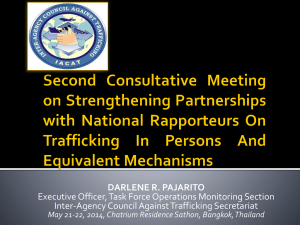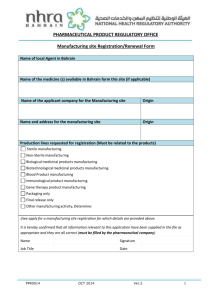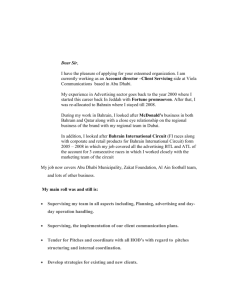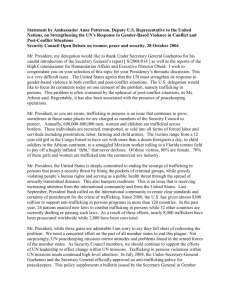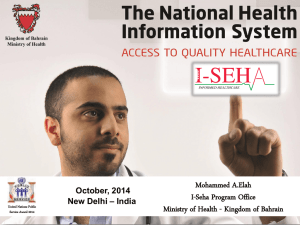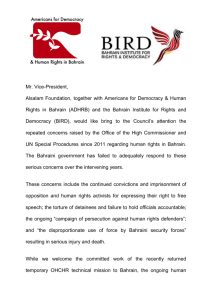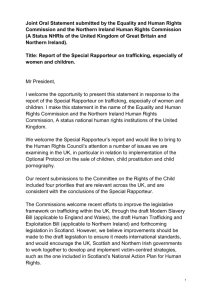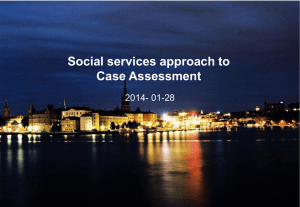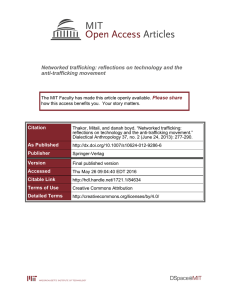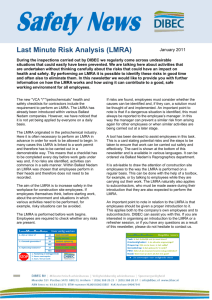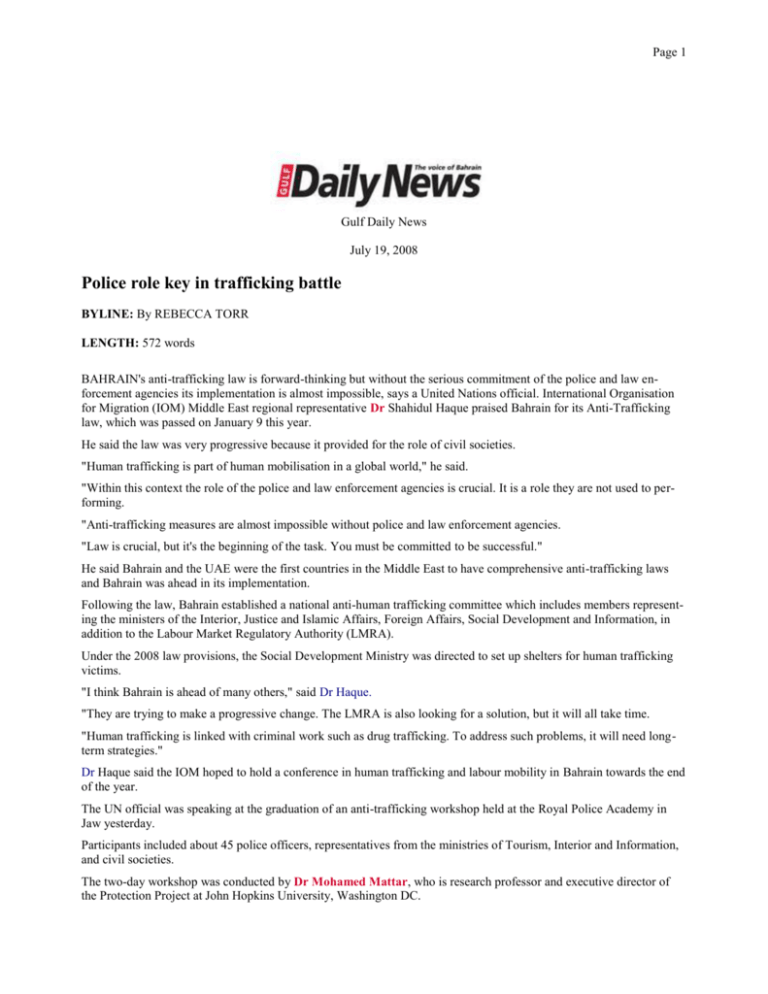
Page 1
Gulf Daily News
July 19, 2008
Police role key in trafficking battle
BYLINE: By REBECCA TORR
LENGTH: 572 words
BAHRAIN's anti-trafficking law is forward-thinking but without the serious commitment of the police and law enforcement agencies its implementation is almost impossible, says a United Nations official. International Organisation
for Migration (IOM) Middle East regional representative Dr Shahidul Haque praised Bahrain for its Anti-Trafficking
law, which was passed on January 9 this year.
He said the law was very progressive because it provided for the role of civil societies.
"Human trafficking is part of human mobilisation in a global world," he said.
"Within this context the role of the police and law enforcement agencies is crucial. It is a role they are not used to performing.
"Anti-trafficking measures are almost impossible without police and law enforcement agencies.
"Law is crucial, but it's the beginning of the task. You must be committed to be successful."
He said Bahrain and the UAE were the first countries in the Middle East to have comprehensive anti-trafficking laws
and Bahrain was ahead in its implementation.
Following the law, Bahrain established a national anti-human trafficking committee which includes members representing the ministers of the Interior, Justice and Islamic Affairs, Foreign Affairs, Social Development and Information, in
addition to the Labour Market Regulatory Authority (LMRA).
Under the 2008 law provisions, the Social Development Ministry was directed to set up shelters for human trafficking
victims.
"I think Bahrain is ahead of many others," said Dr Haque.
"They are trying to make a progressive change. The LMRA is also looking for a solution, but it will all take time.
"Human trafficking is linked with criminal work such as drug trafficking. To address such problems, it will need longterm strategies."
Dr Haque said the IOM hoped to hold a conference in human trafficking and labour mobility in Bahrain towards the end
of the year.
The UN official was speaking at the graduation of an anti-trafficking workshop held at the Royal Police Academy in
Jaw yesterday.
Participants included about 45 police officers, representatives from the ministries of Tourism, Interior and Information,
and civil societies.
The two-day workshop was conducted by Dr Mohamed Mattar, who is research professor and executive director of
the Protection Project at John Hopkins University, Washington DC.
Page 2
Police role key in trafficking battle Gulf Daily News July 19, 2008
It was held as part of a UN-led project entitled Capacity Building and Awareness Raising on Counter-Trafficking in
Bahrain.
The project is designed to raise awareness about human trafficking and includes training on law enforcement, shelter
management and capacity building.
Dr Mattar said the purpose of the workshop was to examine Bahrain's Anti-Trafficking law and discuss how it could
be implemented.
He said the law was the first in Bahrain to recognise trafficking in persons as a specific offence subject to a serious penalty of between three to 15 years.
"The law is comprehensive in that it isn't limited to an organisation but also provides for measures to protect victims,"
he said.
"It provides for a bill of rights for victims of trafficking including the right to information, safety, privacy, residency,
medical care, social assistant, employment and the right to return to their countries.
"The law recognises the trafficked person as a victim entitled to human rights.
"All practices that may have taken place and many deviations from the law should now be ceased," said Dr Mattar
becky@gdn.com.bh
LOAD-DATE: July 19, 2008
LANGUAGE: ENGLISH
PUBLICATION-TYPE: Newspaper
JOURNAL-CODE: 5
Copyright 2008 Gulf Daily News - Hilal Publishing and Marketing Group.
All Rights Reserved
Provided by Al Bawaba (Albawaba.com)

